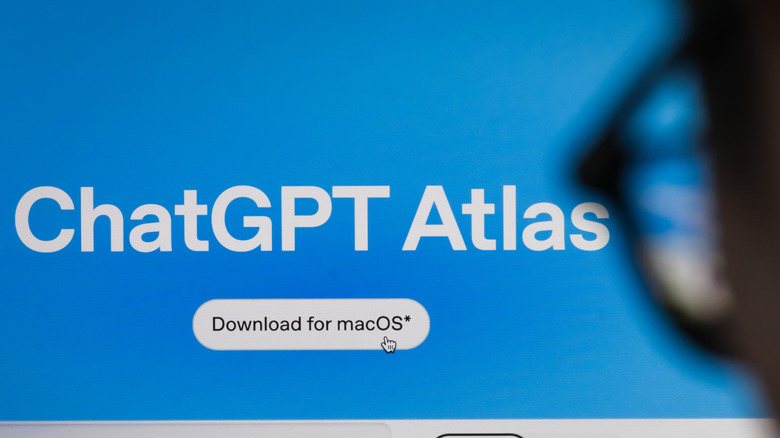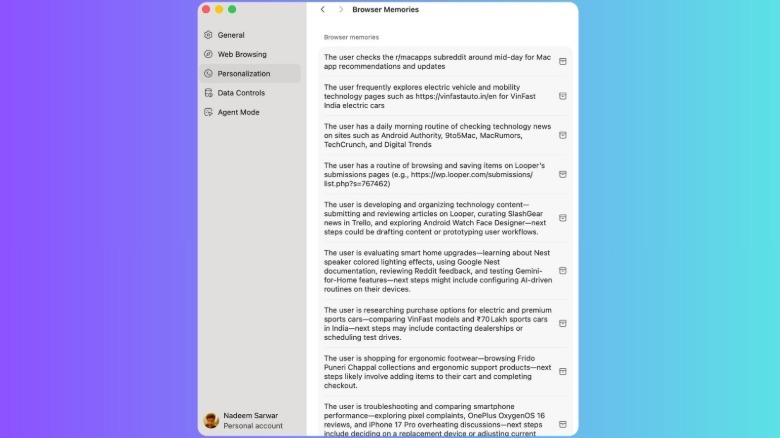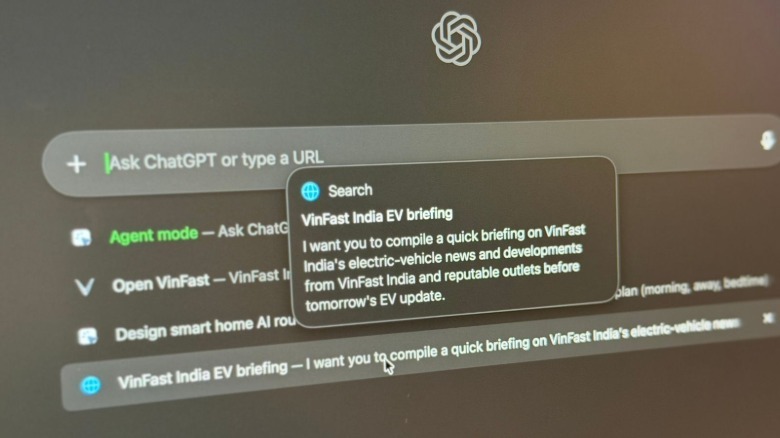OpenAI's ChatGPT Browser Remembers Everything You Do. Are You Really Okay With That?
Imagine a browsing software woven around ChatGPT, one where OpenAI's chatbot helps with your work, links to your Drive files, serves as a knowledge bank, and even goes shopping for you. As you spend a few days with the browser, it learns and keeps a log of everything, so that it can provide quick access to what you are probably looking for. You type a command like "Open the tab from last week where I was looking for Chelsea boots," and it complies. That's the core premise of OpenAI's ChatGPT Atlas browser: a browser that acts more like a web-browsing butler than a manual tool that requires your clicks and taps.
I've been using the ChatGPT Atlas browser for over a week, and so far, the journey has been fairly rewarding. The side panel with the ChatGPT assistant is fantastic, and so is the ability to run custom chatbots. All the familiar ChatGPT features, such as Deep Research and image generation, are easily accessible. It's essentially ChatGPT with a browsing cloak. And that's where the problems begin. Web browsers store an entirely different kind of information — from your login credentials to your entire browsing history — compared to the tasks ChatGPT is limited to.
The blurring of lines between what should be personal, mundane, and work-related is alarming. Handing over all that data to a chatbot-browser mishmash is like giving a single entity wholesale access to your entire digital footprint. And it's not just the unrestricted flow of data that is concerning, but also the unproven security track record of chatbot-ified browsers and the inherent privacy risks that come with the whole AI architecture operating on the web. Even for an average user like me, the sheer volume of data ChatGPT collects spooked me.
A test of trust
The biggest difference between an ordinary and an AI-infused web browser, such as ChatGPT Atlas, is how user activity is stored. In a regular browser, you open the history section to recover a now-deleted tab or revisit past web activity. If you've deleted the history or set up an auto-deletion protocol, that's the end of it. With ChatGPT Atlas, the browser doesn't just save a log of the websites you have visited; it also saves the entire pattern. Check out how ChatGPT Atlas created a whole pattern of my daily web browsing work:
This is the most intrusive fingerprinting that I've seen on any software product. And mind you, this is just what's disclosed to the user. What's happening with background tracking across websites remains opaque. The approach is a double-edged sword. Let's say you visit a select few websites regularly. The moment you click the universal search box, you will see a list of web pages you recently visited or frequently visit, and it even suggests relevant next steps. For example, a few days ago, I looked up the price of Vinfast EVs in my country. A day later, when I opened ChatGPT Atlas, the search bar gave me the following action tip:
Now, these suggestions are barely helpful, especially when you've done only a one-off search for an object or topic. But the sight of ChatGPT Atlas offering to research what I looked up on the internet is a clear sign that the browser not only picked up my activity signal, but is also nudging me to take action that I don't want to take in the first place. Imagine the hyper-personalized ad potential that comes with this approach.
A sea of unprecedented risks
There's a convenient side to the activity tracking — personalization made possible with memory retrieval. You can just search "What hotel was I checking out for a summer vacation last week," and it will comply. But ChatGPT Atlas digs deeper into your digital life than an ordinary web browser. It can not only pull details from your browsing activity but also reference your ChatGPT conversations. Yes, it's cool to see, but extracting information from two entirely different (but fundamentally connected) products is pretty unnerving.
Then there's agentic browsing, where the built-in Agent Mode in Atlas autonomously surfs the web to handle tasks such as buying stuff or making reservations. Jay Kulkrani, who leads a digital marketing company and online ads company, notes that AI agents operating in a browser should not be given free rein to act on our behalf. The biggest problem with AI agents is that, as they interact with other services, the hand-off of user information becomes a tad more complex than your usual web-based activity. Leo Feinberg, co-founder and chief at Verax AI, told me that early adopters should be extremely cautious with AI in browsers.
How much of the information is being saved? Is the activity being saved as a memory or just a log, like an ordinary web browser? Who bears the accountability for data theft and other privacy-related incidents if an AI agent is hijacked while visiting a website? Experts have also highlighted that browser agents are vulnerable to prompt injection attacks. At the end of the day, the idea behind Atlas is essentially to combine your chatbot and browsing interactions. This convergence is convenient, but scary. And if that resonates with you, you should consider privacy-preserving options like Zen.




